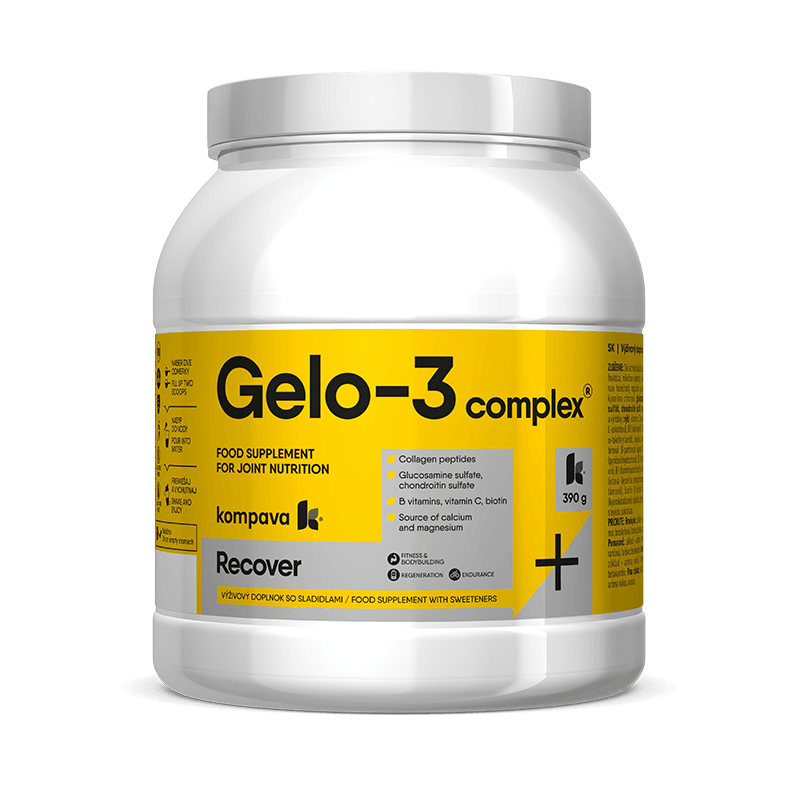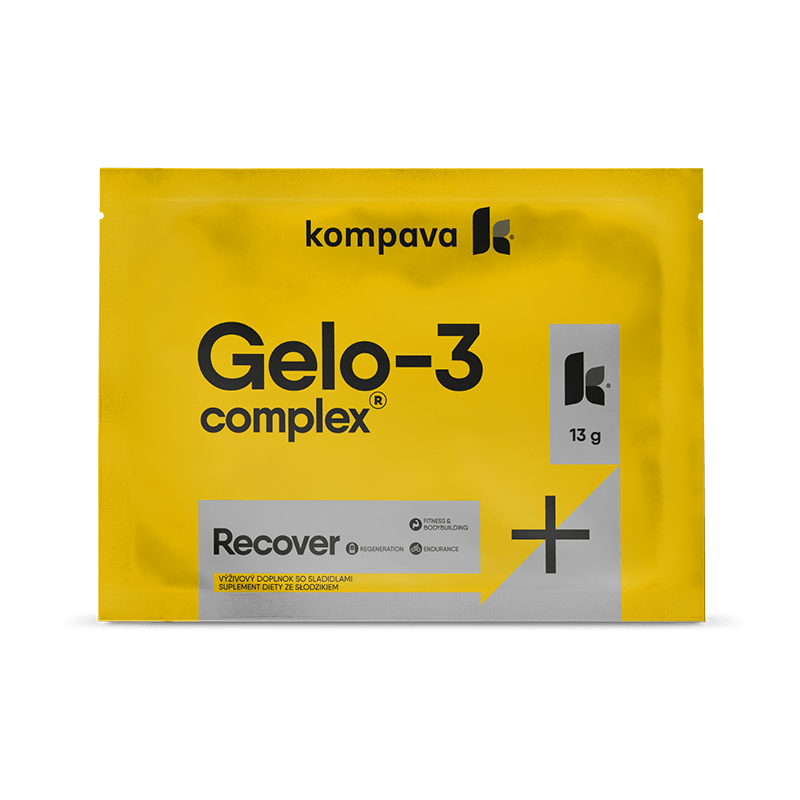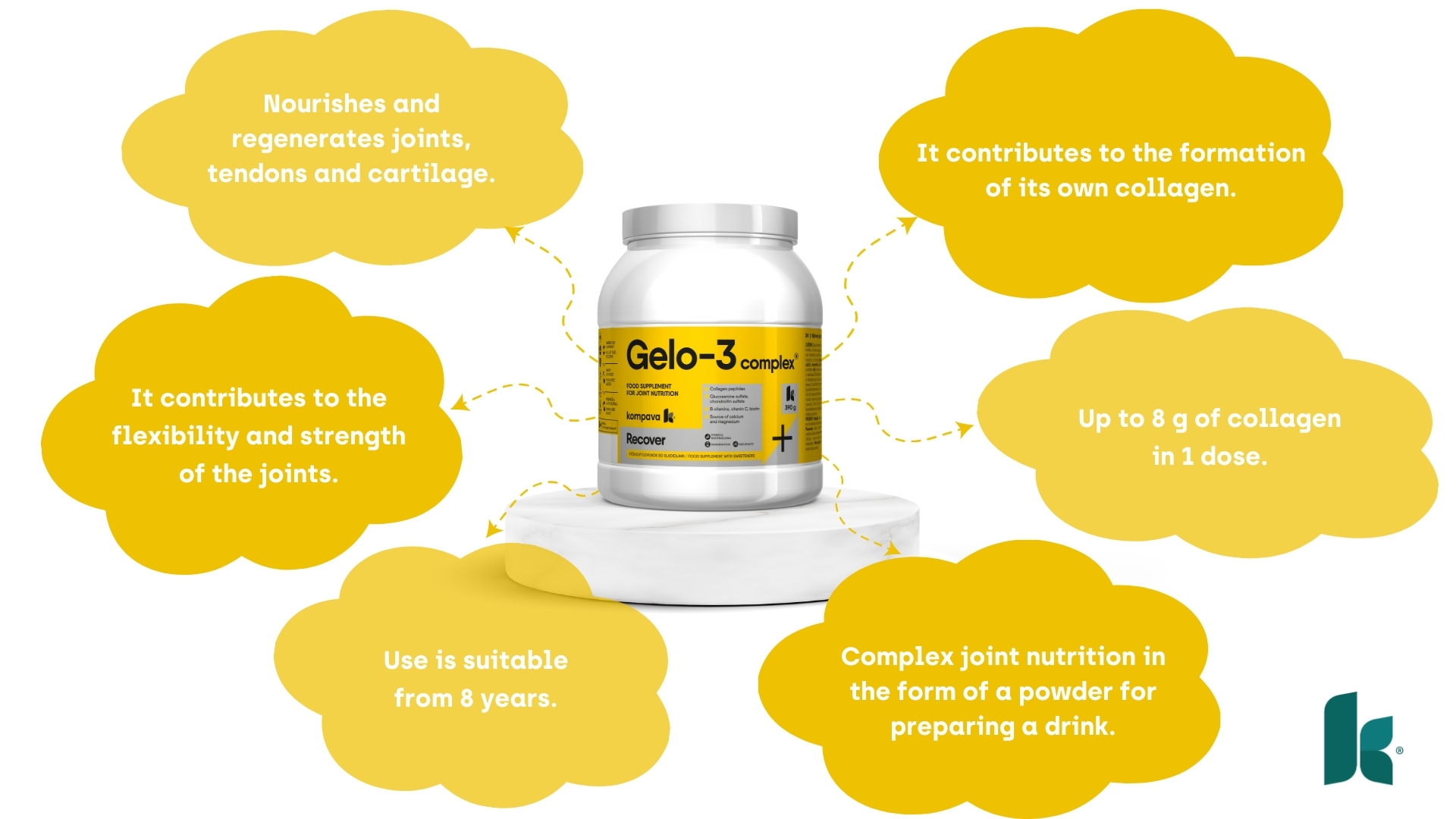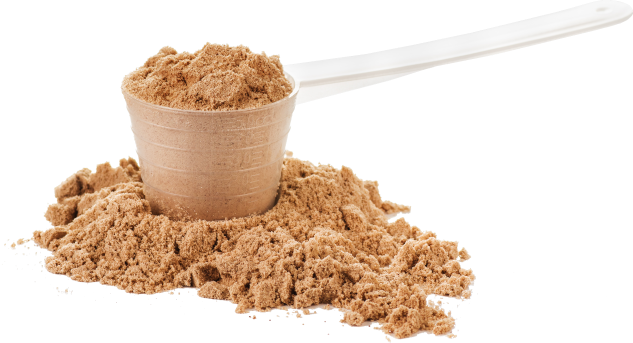
Collagen plays an important role in the human body, and the symptoms of collagen loss negatively affect the entire musculoskeletal system - bones, tendons, ligaments, cartilage and connective tissues, and last but not least, blood vessels. Collagen in the musculoskeletal system is located approximately 67% in articular cartilage, 80% in ligaments and 90% in tendons. Articular cartilage has no nerve supply, nor blood or lymphatic vessels. This allows water and small molecules to penetrate the joint most easily, which is why Gelo-3 Complex® contains highly absorbable collagen peptides (hydrolyzed collagen). At the same time, collagen peptides signal your body to produce its own collagen.
The unique composition of Gelo-3 complex® provides the best nutrition for strained joints - it contains not only hydrolyzed collagen, but also Glucosamine sulfate, Chondroitin sulfate, vitamin C, calcium and magnesium in organic form and thus comprehensively nourishes the musculoskeletal system. It also supports the restoration of soft structures and accelerates the regeneration of the joint apparatus. Glucosamine sulfate and chondroitin sulfate are building blocks of joint cartilage and connective tissues that support the strength and flexibility of your joints. Unfortunately, with age and constant pressure on the joints, their number decreases.
You receive up to 8 g of collagen peptides in one dose of Gelo-3 Complex®.
Gelo-3 complex® contains:
- Collagen peptides (hydrolyzed collagen)
Collagen peptides are the result of the hydrolysis of these chains, which means that they are broken down into smaller fragments, called peptides. These peptides have a lower molecular weight and a better ability to penetrate into the bloodstream and subsequently be absorbed by the body compared to untreated collagen. The main reason for using collagen peptides is their ability to support the formation of new collagen in the body. - Glucosamine sulfate
Glucosamine sulfate is a substance that occurs naturally in the human body and is a basic component of cartilage. It is an amino saccharide that plays an important role in the formation and maintenance of joint and cartilage health. The main role of glucosamine sulfate is to supply the necessary components for the formation of glycoaminoglycans (GAG), which form an important part of cartilage. These GAGs provide protection and lubrication to the joints, which reduces friction between bone and cartilage. It helps restore joint cartilage and protects it from wear. - Chondroitin sulfate
Chondroitin sulfate is a component of cartilage that helps maintain its structure and elasticity. It is a type of glycoaminoglycan (GAG) that, together with collagen, forms the basic building block of cartilage. Chondroitin sulfate contributes to the preservation and restoration of cartilage tissues, promotes joint lubrication and reduces inflammatory processes in the joints. It helps restore joint cartilage and protects it from wear. - Vitamin C
Vitamin C is an important antioxidant and plays a key role in collagen formation. Vitamin C stimulates the synthesis of new collagen during the wound healing process or after injuries. This process is important for the regeneration of damaged tissues, such as cartilage. - Calcium
Sufficient intake of calcium is essential not only for strong and healthy bones, but also for the support of proper joint function. Calcium plays an important role in joint protection by ensuring proper bone density and preventing osteoporosis and other joint diseases. Ensuring adequate calcium intake is key to preventing joint injuries and maintaining flexibility and mobility. - Magnesium
Regular intake of magnesium can help maintain healthy joint tissues and protect against degenerative diseases such as osteoarthritis. Magnesium is also important for the formation of collagen and other basic joint structures, which can aid in recovery after injury or surgery.













